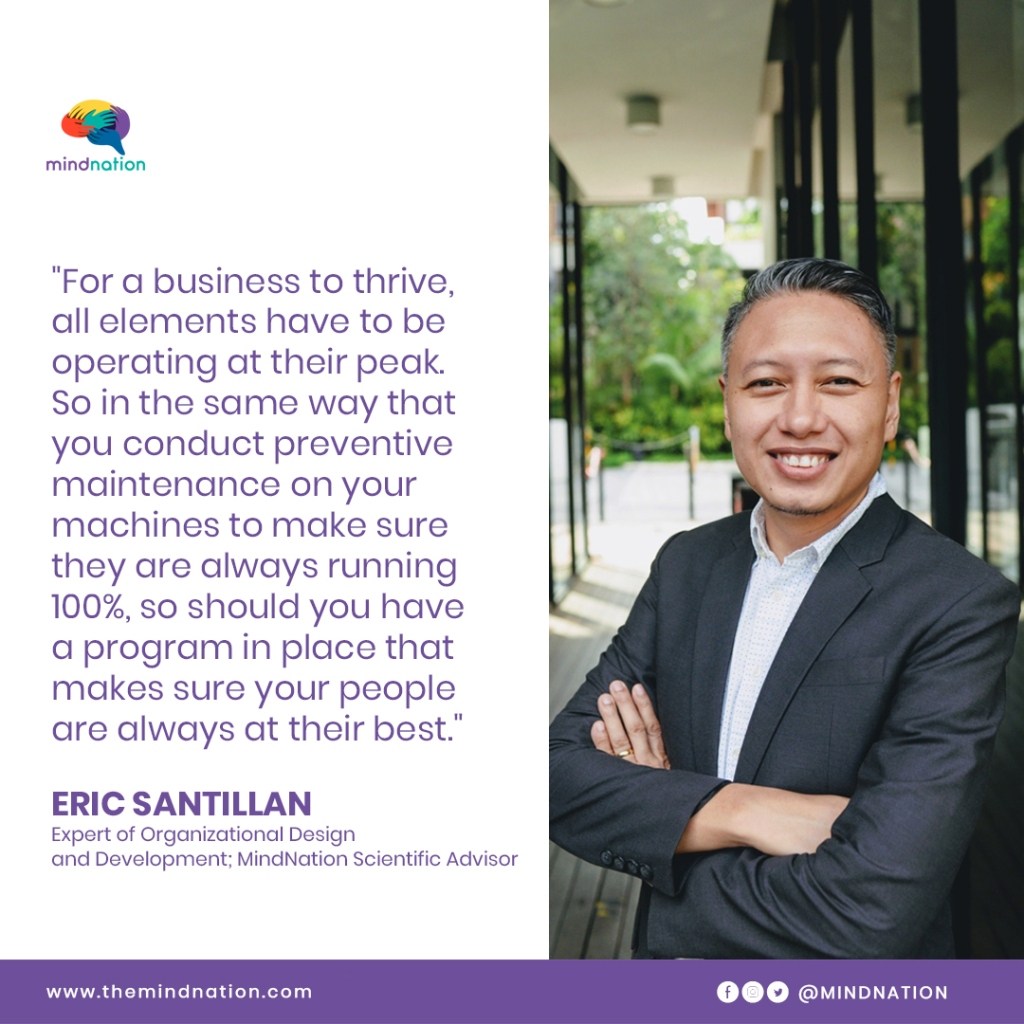When the COVID-19 pandemic struck in 2020, many employees learned the hard way how important having an emergency fund was. Having money tucked away in case of job loss, reduced income, or other large and unexpected expenses can help ease stress and create a financial buffer to keep one afloat during times of need without having to rely on credit cards or taking out a loan (both of which they might have difficulty paying off in the end).
“An emergency fund is a form of savings account. You keep it in the bank and only spend it on dire situations,” advises financial consultant Nicole Suarez. “Only when you have met your target amount can you explore putting the excess in investments.”
If your team is experiencing financial stress or need help building better budgeting habits, partner with MindNation to avail of 24/7 teletherapy sessions with WellBeing Coaches who can help ease their anxieties. Visit www.mindnation.com or email [email protected] now.
How much is needed?
“The general rule would be to set aside three to six months’ worth of living expenses,” Nicole suggests. But even then, she says that it also depends on one’s personal and financial circumstances. “Is the person a breadwinner? A parent? Or are they single and living with parents who provide for all their needs?” she enumerates. All these factors should be considered when computing how much money to set aside. For example, employees who are breadwinners will need to save even more, while those who are single can put small amounts into the emergency fund and just increase it over time. “The important thing is to build the habit,” she adds.
How to build the fund during the pandemic
Replenishing an emergency fund on a reduced salary can be hard but it’s not impossible. Here are some suggestions you can offer your team members so that they can find extra money to set aside:
- Just start with what they can. Employees who are living paycheck to paycheck should not be expected to set aside an entire month’s salary right off the bat; it’s unrealistic and will set them up to fail. “Suggest that they set aside whatever they are comfortable with,” Nicole stresses. “When it comes to saving money, any amount will help.”
- Turn clutter into cash. “Look for things at home that they no longer need but can sell,” Nicole advises. These include pre-loved clothes, toys, and other household items. “Of course, they won’t be able to price them as high as they would want, but assure them that a small amount is better than nothing.”
“When it comes to saving money, any amount will help.”
Nicole Suarez, Financial consultant
- Cut down on expenses. “Remind them to be mindful of how much takeout they order in a month and to resist impulse buying during payday sales,” Nicole says. “Ask them to review their monthly subscriptions, like meal services or streaming services — is it possible to downgrade the subscription or cancel it entirely?”
- Look for other sources of income. “If your employee is particularly skilled at something, encourage them to turn it into a side business,” she suggests. This article by Forbes lists the reasons you should let your team moonlight: it will boost their financial health, give them an outlet for pursuing their passion, improve their creativity, and make them happier overall — all characteristics of a good employee.
But to make sure that their side hustle does not interfere with their work in the company, clearly communicate your rules and boundaries during you regular one-on-one sessions; having an honest and open conversation will benefit you both. - Don’t go into debt. “An emergency fund is something that is built over time; because there is no pressure to come up with the money right away, it does not make sense to borrow money to fill it,” Nicole explains.
During these uncertain times, an emergency fund can go a long way to boosting your team’s financial and mental health.




















